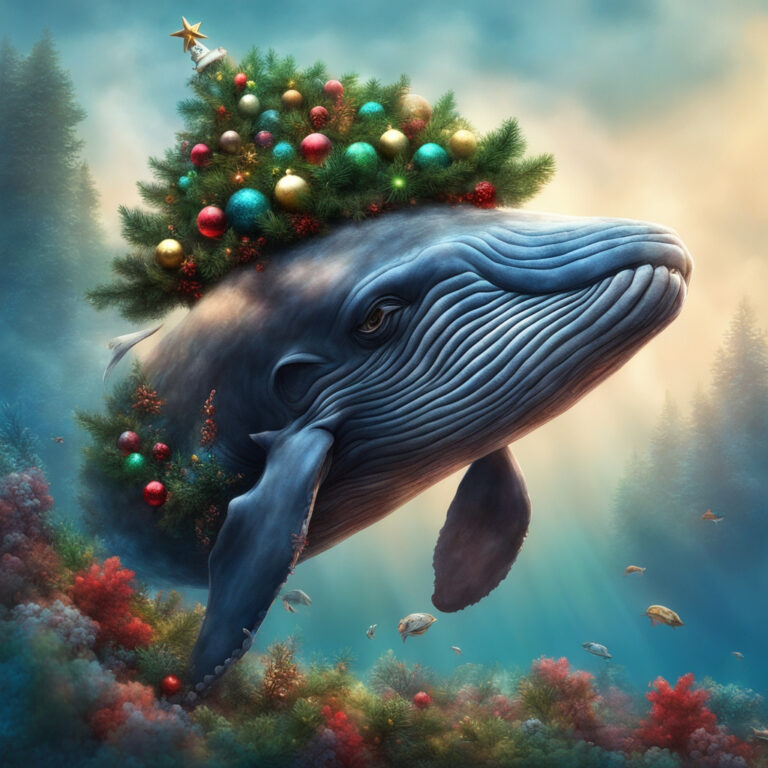We are having an intimate holiday season with food, family, and small adventures along the Oregon coast. There were hints of Christmas with presents and music, as well as new Yule poetry that celebrates the cycles of the ocean in a natural dialogue with the seasonal flow: “King tides pull the world upward / … / Whales coast through gabled waters…” And then there are the swirling culture wars out there somewhere trying to deny us our diverse ideas and new traditions. We don’t worry much about their misdirection, but find the lack of creativity disheartening. Why not learn and invent new ways of thinking about society and culture?
Rabbi David Wolpe at Harvard Divinity has a more historical and intellectualized take on modern life in the Atlantic where he tries to collapse all the complexity of modern political instincts into an amalgam about insufficient humility about our own ideas and capabilities. I like critiquing these kinds of intellectual histories because I am humble enough to doubt that singular ideas can explain all the myriad ways of flourishing in human history. “The Return of the Pagans” maps the contemporary left with their environmental worship—and the right with heroic icons like Donald Trump—to something like the Greco-Roman idolization of beauty, power, wealth, and creativity. It is the invention of monotheism that focused the ancient mind on a singular divinity that we poor humans can always prostrate our tiny plans before. Elon Musk shouldn’t strain to get to Mars. Tech Bros shouldn’t accelerate technological change without deep humility about the impact on society. The ultra-wealthy used to be more concerned for using their wealth for good. Everyone should instead contemplate their imperfect sin-nature in the face of perfection.
It is a curious idea that mirrors some of the other meditations on the value of the Abrahamic faiths I routinely read. It is also glaringly false. While there are pagan traditions that did elevate human achievements like the Roman state to a divine-level status, they were also countered with concepts like hubris that warned of the consequences of failing to understand one’s own limitations. Humility serves a central role in polytheistic Hinduism, and is fundamental to the Tao te Ching. It arises in Confucianism, and is central to the epistemic humility of Socrates. How could it be otherwise? Humility is a fundamentally valuable way of avoiding errors in our thinking and testing the validity of our thoughts. Rather than a reflection of our insufficiency in the face of a creator, humility is an evolved cognitive and emotional tool for participating in social organizations by helping manage resources against their misapplication.
Moreover, idolizing politicians, rock stars, divas, military geniuses, the wealthy, aristocrats, and celebrities is and always has been as widespread among monotheists as it is a part of any thin segment of pagan thought. No matter the warnings about idolatry, our human nature can only be moderated, not reformed, by the poetry of worship or literature or songs and psalms.
So what is left of the good rabbi Wolpe’s article? Perhaps we can view it as the same kind of warning that we have seen from evangelical thinkers who are worried about what they see in their faith communities. From unholy strongman politics to the desire for American Christian Dominionism, these writers fear the consequences of MAGA politics among their friends and families. They sometimes see the lack of embrace of environmentalism as an offense to God’s creation as well, or the converse pantheism as a threat to their faith. Of interest, perhaps, is how these faith-community klaxons show the slow disintegration of established patterns of interaction in the movement towards new systems of belief. The encroachment of secularism prompted by pervasive information is undoubtedly part of that struggle and we have greater visibility into the clashes than ever before. So it is with these returning pagans, noisily reshaping the edges of the interactions of the faithful with the greater world.
But, on Christmas Day—Yule—this great syncretized pastiche of greenery, presents, rebirth, renewal, solstice, and king tides along the coast, I humbly prefer to view this complexity as a virtue, lifted up by humility and learning, by action and collective forbearance, that we can avoid war, dictators, oppression, and inhumanity in the next year and forever more, and that this great wellspring of creativity that is our world will continue to flourish.

Edits always!
Removed direct association of trees with pagan traditions after review of known history… it’s, eh, murky.